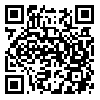
Scientific-Research Quarterly Journal of
Political and International Studies

Volume 1, Issue 2 (9-2024)
SRQPIS 2024, 1(2): 47-69 |
Back to browse issues page
Download citation:
BibTeX | RIS | EndNote | Medlars | ProCite | Reference Manager | RefWorks
Send citation to:



BibTeX | RIS | EndNote | Medlars | ProCite | Reference Manager | RefWorks
Send citation to:
Kazemi S A. Political Tyranny and the Decline of the Islamic World from the Perspective of Kwakbi and Naini. SRQPIS 2024; 1 (2) :47-69
URL: http://srqpis.knu.edu.af/article-1-29-en.html
URL: http://srqpis.knu.edu.af/article-1-29-en.html
PhD in Contemporary History of the Islamic World and Professor of Islamic Civilization and Biography at Al-Mustafa International University
Abstract: (5890 Views)
In contemporary history, many challenges and crises are plaguing the Islamic world; One of the most important crises is the crisis of Islamic society's decline and backwardness. In this research, we discuss the role of authoritarian culture in the decline of the Islamic world from the perspective of two prominent Islamic thinkers, Abdul Rahman al Kawakebi and Mohammad Hossein Naini. based on Spriggans conceptual model of crisis. The purpose of this research is to answer how to investigate the role of authoritarian culture in the crisis of decline of Islamic societies from the perspective of Kawakbi and Naini. According to those two thinkers, based on the Spriggans crisis, which has four stages and each stage is based on the previous stage, the current condition of the Islamic world is in decline and backwardness, the most important root of which is the culture of tyranny. By looking at the ideal society, i.e., Umm al-Qura and Wilayat Foqaha, it is possible to prevent the tyranny and oppression of the government by involving the people in political affairs, forming a constitutional government and limiting its powers, making them responsible for the people and their duties.
Keywords: culture of tyranny, Umm al-Qura, jurisprudence, constitutionalism, degeneration, backwardness
Send email to the article author
| Rights and permissions | |
 |
This work is licensed under a Creative Commons Attribution-NonCommercial 4.0 International License. |



